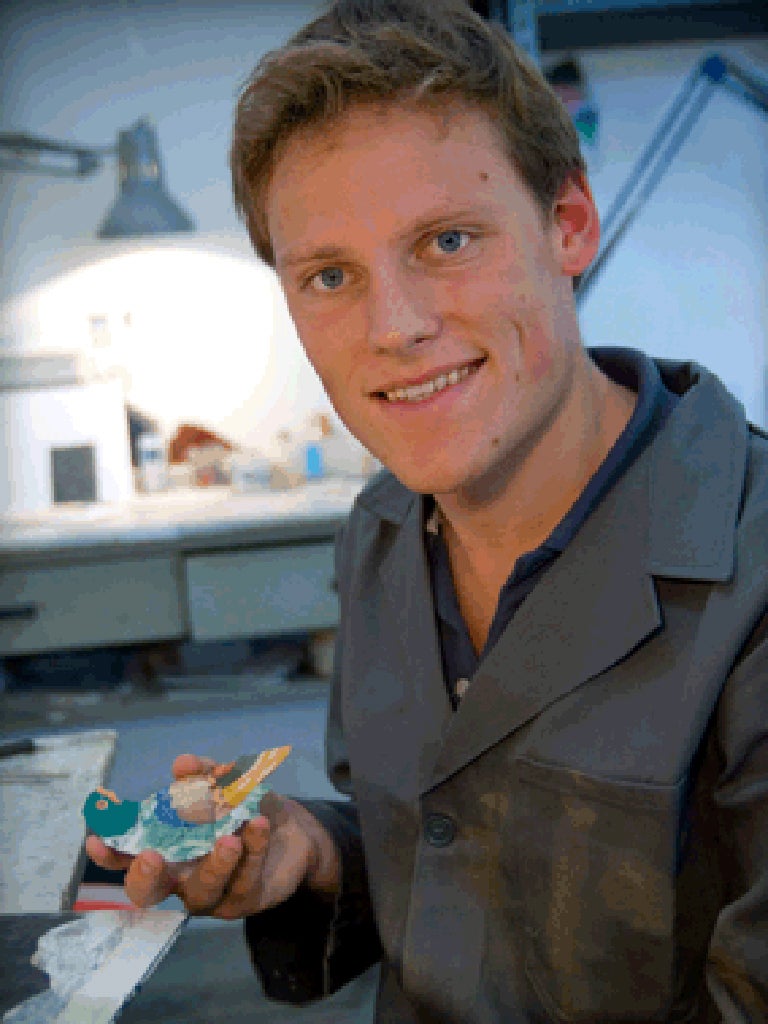Turning the tables on cheap design
Journalist Melanie Cable-Alexander talks Slow Furniture with Emily Jenkinson

Your support helps us to tell the story
From reproductive rights to climate change to Big Tech, The Independent is on the ground when the story is developing. Whether it's investigating the financials of Elon Musk's pro-Trump PAC or producing our latest documentary, 'The A Word', which shines a light on the American women fighting for reproductive rights, we know how important it is to parse out the facts from the messaging.
At such a critical moment in US history, we need reporters on the ground. Your donation allows us to keep sending journalists to speak to both sides of the story.
The Independent is trusted by Americans across the entire political spectrum. And unlike many other quality news outlets, we choose not to lock Americans out of our reporting and analysis with paywalls. We believe quality journalism should be available to everyone, paid for by those who can afford it.
Your support makes all the difference.In 1986, the Slow Food Movement launched in Italy as a way of connecting what we eat with issues such as the environment, our health, and the preservation of local communities and skills. Since then, the organisation has expanded globally and the message - to buy locally and sustainably for a better future - is more powerful and relevant than ever. But why shouldn’t this message apply to design?
Best known as a journalist, Melanie Cable-Alexander has recently put down her pen to launch a Slow Furniture Movement alongside Lapaloosa, a brand new website selling hand-made and bespoke British furniture and design. A long-time supporter of the Slow Food Movement, her idea is to apply the messages of Slow Food to a design context and, in doing so, raise awareness of British skills and crafts.
The concept came about back when Melanie was features editor at Country Life magazine and running the hugely successful series Living National Treasures. This looked at the people crafting items for some of the grandest houses in the UK and went on to become a book and exhibition. “At the time, I realised how many British skills were dying out, which I found distressing,” explains Melanie. “I’d sometimes be interviewing the last maker of their kind in a family where generations had been practising these skills. This is my way of trying to ensure that the country maintains its history of incredible craftsmanship.”
Sourcing designer/makers to feature on Lapaloosa has been “the fun bit” of setting up the site, says Melanie, and she has applied her hack’s nose for a story in tracking down artisans such as Thomas Greenaway, who practises the art of pietradura, an ancient form of mosaic work using semi-precious stones. “He was a recommendation from a maker,” says Melanie. “I discovered the textile artist Corita Rose simply by talking to a stranger on a train, and I came across Suzy Barbor’s decoupage mats in a friend’s house. I try to look for people who are relatively unknown and produce well-made, classic designs with a contemporary twist, such as the upholsterers Hossack&Gray, whom I came across in an antique showroom in Wiltshire.”
With the easy availability of cheap, flat-packed furniture, which - Melanie freely admits - “has given thousands of people the chance to enjoy a style that was once only for the very few,” it is easy to forget that such skilled craftspeople still exist in the UK. But exist they do and, if we don’t support and nurture them, says Melanie, they will struggle to carry on. “We are not as good as other countries at supporting our own people,” she explains. “An Italian would buy an Italian car, Italian food and choose Italian architects and makers without even thinking about it, whereas we tend to be much more eclectic in our choices and not necessarily consider the implications for British industry. The result is that, if we are not careful, our manufacturing industry will die out and we’ll all be sitting on sofas made in China.”
With the journalism on hold, Melanie hopes to grow Lapaloosa and its “more altruistic sister,” Slow Furniture, into a true celebration of British culture while reminding people of how things are made and the skills required to make them. As she says, “It is about choosing how to spend your money carefully and for the right thing.” 20 years after the Slow Food Movement launched and most are prepared to pay more for a properly reared chicken. In 20 years’ time, will we extend the same consideration to a properly made table? For the sake of Britain’s most skilled craftspeople and artisans – not to mention the environment and the heritage of future generations – I sincerely hope so.
Emily Jenkinson is interiors writer for the mydeco marketplace, an online shopping experience where you can search hundreds of home furnishings and accessories all in one place.
Join our commenting forum
Join thought-provoking conversations, follow other Independent readers and see their replies
Comments